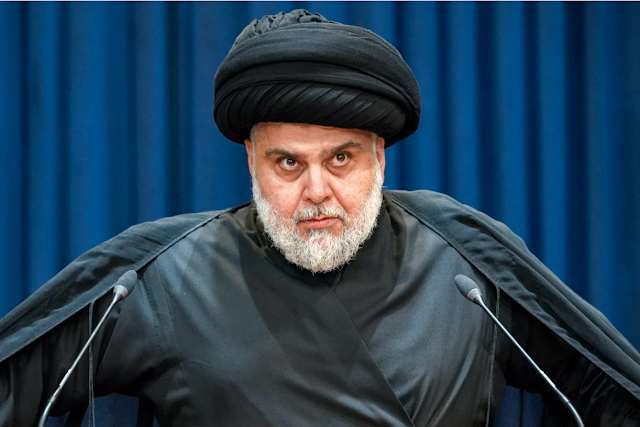 |
| (AFP) |
When Iraq’s ruling parties were negotiating a new government in the summer and fall of 2022 they were discussing early elections. This was mostly pushed by Moqtada al-Sadr and supported by his allies Speaker Mohammed Halbusi and the Kurdistan Democratic Party. The idea was that the elite would agree upon a compromise premier but then hold elections again for a more permanent government. Sadr was initially in the dominant position with the most seats in parliament and thought he would do even better if voting was held again solidifying his position as the new leader in the country.
This received on and off again support by Sadr’s rivals in the Coordination Framework. Asaib Ahl Al-Haq for instance said it would back voting but then reversed itself later.
When Mohammed Sudani became prime minister however all the talk of early balloting was dropped. It’s easy to see why. It took one year to form the Sudani administration. Not only that but many members of the Coordination Framework did very bad in the 2021 election either because they didn’t prepare for the new rules like Fatah or lost much of their support such as Ammar Hakim and Haidar Abadi. Why would they want to repeat that whole arduous process especially if some of them could do even worse at the polls?
This was another defeat for Sadr who went from kingmaker to being completely excluded from power.
SOURCES
Al Aalem, “New early elections … a solution agreed upon by the political forces on conditions,” 7/31/22
- “A scenario for Al-Kazemi’s survival … and forces that hint at early elections on this date,” 7/25/22
- “The Sudani government .. The Framework is backing away from early elections and Sad is waiting,” 10/17/22
Asharq Al-Awsat, “Sadr’s Followers Set Up for Long Sit-in at Iraq Parliament,” 7/31/22
Al Mada, “The Asaib Ahl Al-Haq bloc acknowledged the difficulty of early elections: the people have lost confidence in the results,” 8/8/22
Al Masalah, “Al-Halbousi supports Al-Sadr’s call for early elections,” 8/5/22




No comments:
Post a Comment